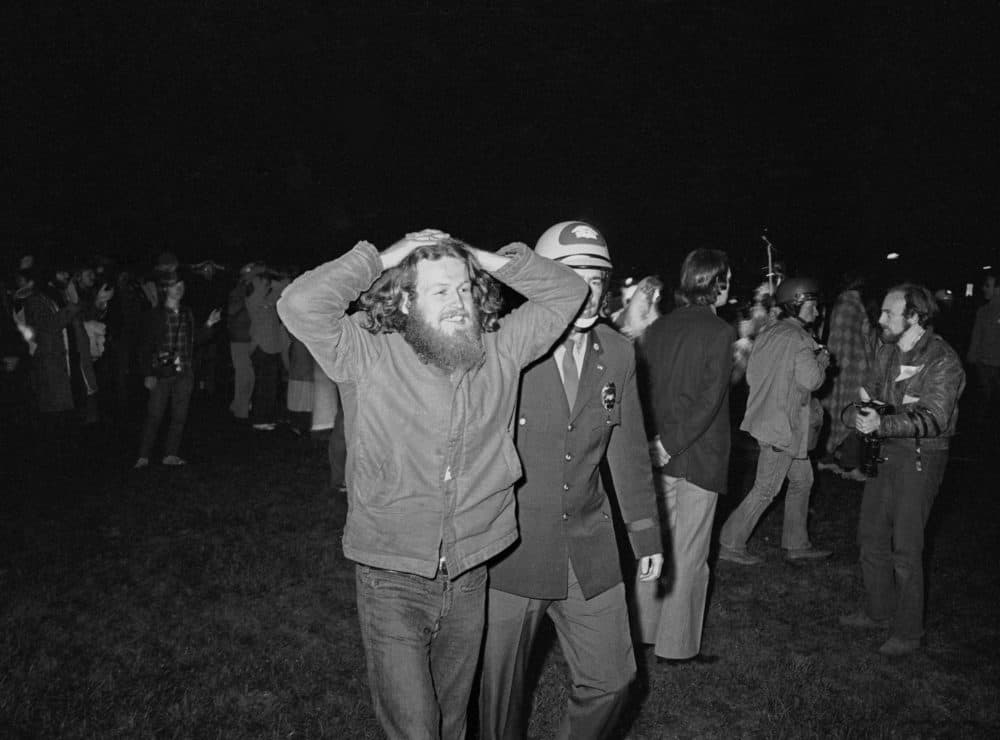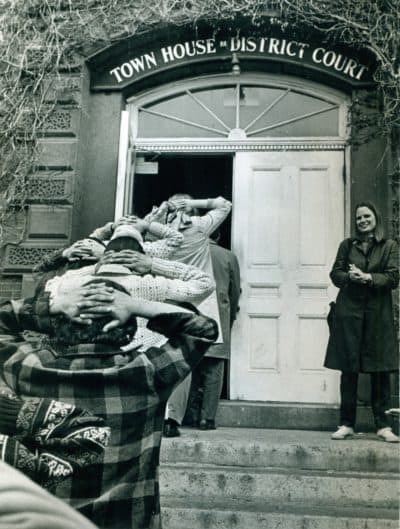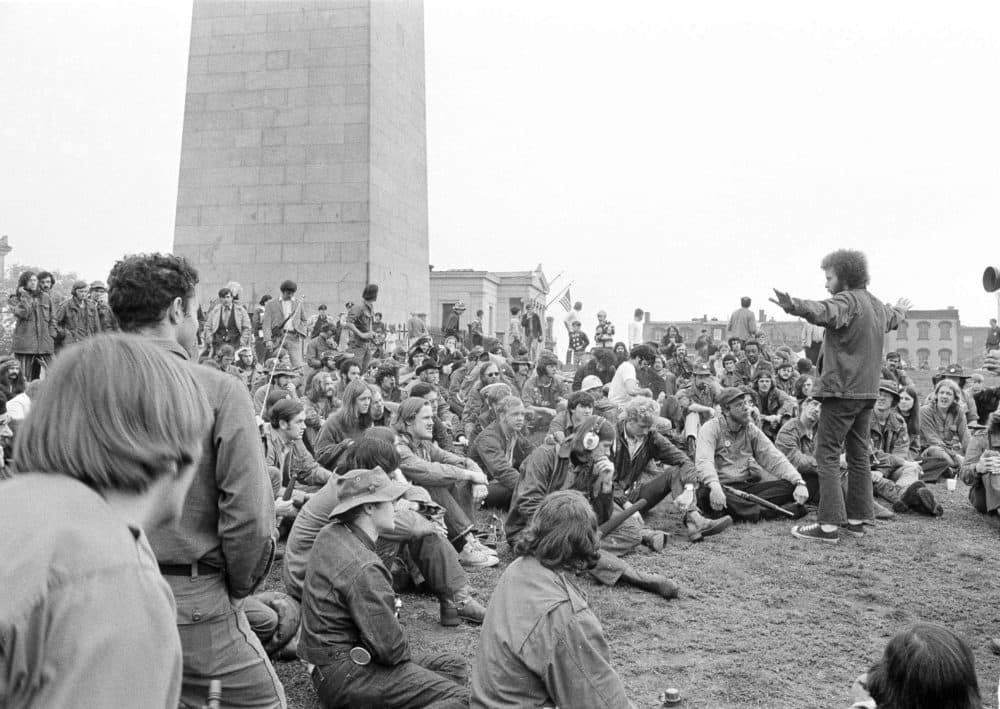Advertisement
50 Years Ago, A Vietnam Protest Led To One Of The Largest Mass Arrests In State History
Resume
By the spring of 1971 more than 50,000 Americans had been killed in Vietnam. The conflict tore the country apart and some of the loudest voices against the war came from those who had fought in it.
Ahead of Memorial Day that year, New England members of the Vietnam Veterans Against the War planned a march along the Battle Road, from Old North Bridge in Concord to Bunker Hill, with a symbolic stop on Lexington's Battle Green — where the Revolutionary War saw its beginnings. Fifty years later, veterans of the protest, former soldiers and supporters returned to the green to reflect on what happened.
"It was essentially recognizing that what the Minutemen did back in 1774, 1775 1776, was about a warning to a population that could no longer tolerate the oppression of a government and that's what we were reminding everybody of, said Bestor Cram, one of the march organizers.
Cram had enlisted in the Marines. He swept roads for mines during the heavy fighting of the 1968 Tet Offensive.
After he got home, Cram joined Vietnam Veterans Against the War. He says the idea behind the 1971 march was to retrace Paul Revere's Ride, in reverse.
"The plan was to essentially give a cry of warning and that's where Paul Revere came in and we realized, 'OK, we want to end up on Memorial Day down on Boston Common. We're going to start in Concord and sort of retrace the mythological steps of that ride.' "

"We had an idea that we were in a bad moral position, that we wanted to warn people that what we were doing — we were on the wrong side in Vietnam," says Chris Gregory, another vet who participated in the march.
Gregory had also enlisted, in the Army. He helped crews evacuate the wounded from the battlefields of Vietnam. The march, he said, found a receptive audience.
"People really wanted to hear it. They were really ready to get that message and we felt very much supported by the community," he recalled. "We didn't know when we started out that people would come and try and feed us and make sure we were comfortable and the police were friendly and everybody was happy to hear from us and so it energized us quite a lot and we knew we were doing the right thing, you know, so it was very powerful, very meaningful thing for me personally."
The march arrived in Lexington on Saturday. The vets wanted to camp out on the green but the town selectmen said no. The vets took a vote and decided to stay and commit civil disobedience.
They were joined by area residents. Jane Brayton came from Lincoln. "I felt so badly for these people who had served because they came home to some really bad stuff and we didn't support the war as we had done in World War II. So I just wanted to be part of it."
Eventually the police moved in, and more than 400 people were arrested. It's described as one of the largest mass arrests in Massachusetts history. Brayton remembers an officer tapping her on the shoulder and saying quietly, "I have to arrest you."

Eugenia Kaledin was also on the green that night and she was also taken into custody. "I grew up in Philadelphia and was educated by Quakers to think evilly of war, so I was sympathetic of what happened that night."
Kaledin says the march brought the war to Lexington's doorstep. Organizer Bestor Cram says that was the point.
"Our role was to give permission to other people to be against the war. We had fought it," he said. "We weren't going to be challenged as to what we were going to say. Our experience gave other people a sense of, 'I can trust this point of view,' and it gave permission to a lot of people to be out front with their own feelings and their own anti-war sentiment."
Looking back 50 years later, Jane Brayton says what happened in 1971 had a lasting effect on her, and her two young children. "They went into the common and I think it taught them a great lesson about humanity and these brave people that went off to Vietnam and were not supported by most people. It is now paralleled through their lives and and I think the common was a big big part of it."
There's a new book to mark the anniversary of this event. It's called "Battle Green Vietnam: The 1971 March On Concord, Lexington and Boston." Author Elise Lemire says the story resonates today amid social justice protests.
"Recently I saw a picture of young activists holding up Black Lives Matter signs in front of the Lexington Minuteman statue and it reminded me immediately of seeing the Vietnam Veterans Against the War with their flag, their anti-war flag, in front of the same statue," she said. "So I think the Vietnam Veterans Against the War have given us a recipe for how we might get to where we need to go."
The vets and townsfolk arrested on Lexington Green 50 years ago this weekend were taken to Middlesex District Court in Concord that Sunday morning.
They were charged five bucks for disorderly conduct. Lemire says the civilians paid the veterans' fines. The march continued on to Boston.

Clarification: This post has been updated to indicate that the protest is described as resulting in one of the largest mass arrests in Massachusetts history.
This article was originally published on May 28, 2021.
This segment aired on May 28, 2021.
